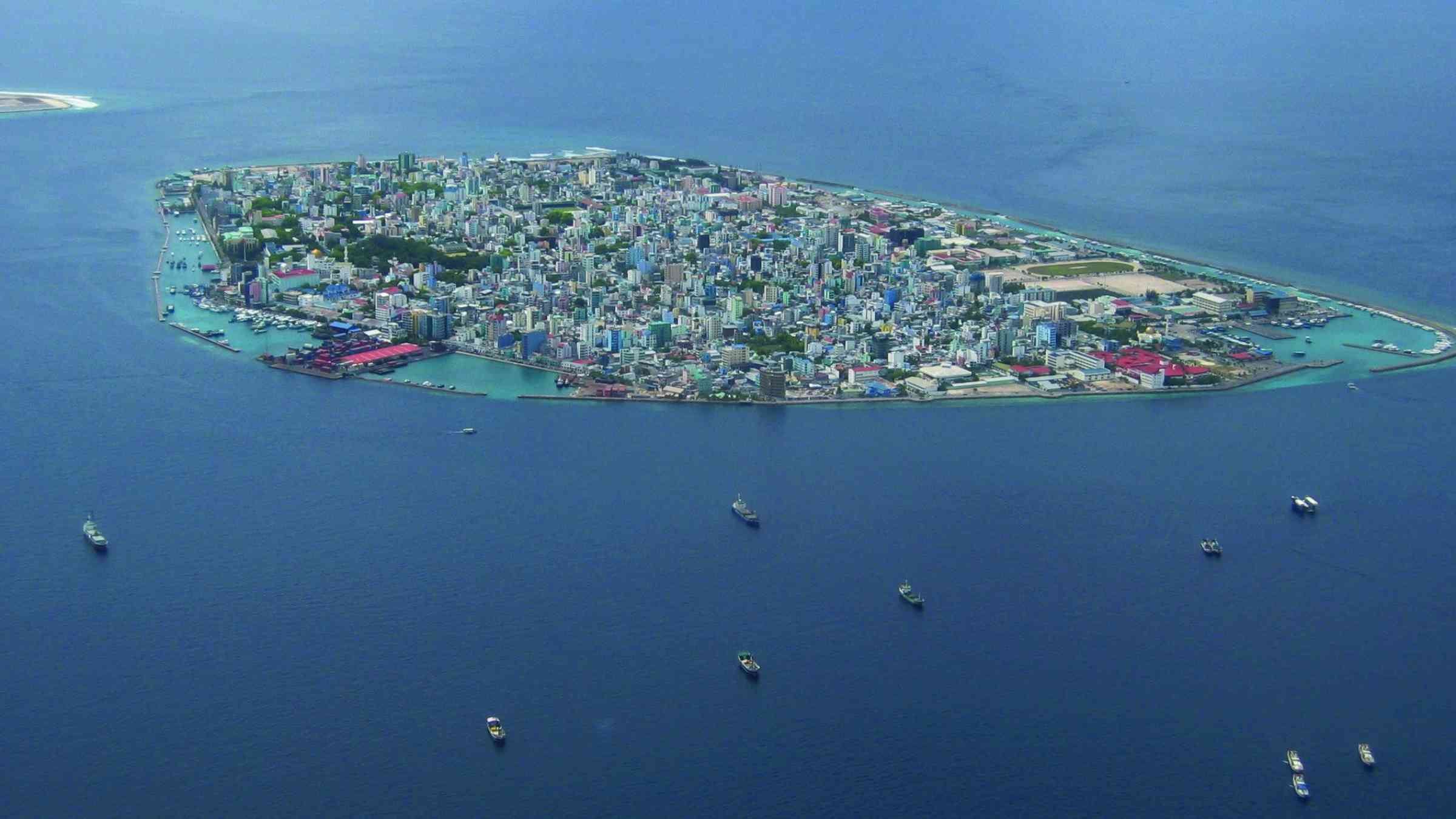National Workshop for Disaster Risk Reduction Strategy: Integrating Climate Futures into Multi-sectoral inclusive DRR planning in Maldives

Meerumaa Event Hall - Violet Magu, Male
Climate change and variability and growing disaster risks has pushed the Maldives to be concerned about sustaining its development trajectory. Accordingly, there is a high degree of awareness of the need for an integrated approach to implementing the 2030 Agenda and many steps have already been taken to strengthen climate change adaptation (CCA) and disaster risk reduction (DRR) efforts. Already a decade ago, the Maldives drafted a Strategic National Plan for Disaster Risk Reduction and Climate Change Adaptation 2010-2020 (SNAP). The Plan recognizes that CCA and DRR have similar aims and may utilize the same tools that have proven effective over the years. Although this document was never fully ratified, the main tenets of the plan (integration between DRR and CCA planning) have continued to inform decision-making in the country.
Importantly, CCA and DRR are already embedded in the Strategic Action Plan (SAP), the Maldives’ national strategy for sustainable development from 2019-2023. The SAP include DRR and climate change objectives and broadly covers the same areas as the SDGs. At the same time, the National Spatial Plan 2020 – 2040 includes objectives on climate resilient infrastructure and refer to environment sustainability, compliance with international commitments. It also includes key guiding principles for decentralized regional development, diversification of an inclusive and equitable economy, improved infrastructure systems and institutional, capacities and conservation and promotion of unique environmental and cultural resource base.
As part of the COVID-19 national resilience and recovery plan (2020 – 2022), the government of Maldives has identified disaster preparedness and risk management as a key focus area in the coming two years. While enhancing the focus on preparedness, the government remains committed to strengthen Maldives climate and disaster risk governance systems including through investments in strengthening coordination capacity, integrated information management systems on risks, response capacities and losses and damages induced by disaster and climate change. The continued focus on the decentralization agenda, and the renewed interest to support local governments on advancing their investments on community based DRR, requires the national government to pursue the development of a national DRR strategy coherent with the national adaptation planning process and expect to become an enabler for multi-sector integrated climate and disaster risk management system with capacities at all levels.
This event marks the launch of process for developing the national comprehensive DRR strategy. A technical training, targeting sector ministries and departments, will be organized back-to-back with the workshop, focusing on assessment methods for systemic risks and use of risk data to inform the development of the strategy. A separate concept note and invites will be circulated with targeted participants.
Workshop objectiveThe workshop will:
- Bring together key government, UN, private and civil society sector stakeholders to kick-off the process of DRR Strategy formulation process
- Invite them to engage and contribute to developing a risk-informed and inclusive national plan that encourages coherent climate change adaptation and disaster risk reduction action across all sectors at all levels.
- Share information regarding existing mechanisms, ongoing projects, the risk data ecosystem, and capacities related to each of the building blocks, and jointly agree on roadmap and collective actions for formulation of the DRR Strategy
- Share knowledge and experience on the current state of risk understanding and action in the Maldives and highlight current policy and sectorial capacities and opportunities for enhancement.
The workshop will result in a shared vision and a draft roadmap to enable the Maldives to develop a quality data-driven and climate-informed DRR strategy, drawing on the skills and capacities of all stakeholders, building on the concepts and good practices on development and implementation of DRR Strategies.
The workshop will ensure that:
- Disaster and climate risk management actors and stakeholders are informed about and fully engaged in the process for developing an inclusive national DRR strategy.
- Overview of current risk governance landscape is shared, including existing sector and development policies and plans, institutional mechanisms, ongoing programs, risk data ecosystem, and capacities.
- Knowledge and experience on the current state of systemic risk understanding and risk reduction action are discussed in the Maldives, highlighting current policy landscape and opportunities for enhancing coherence.
- Good practices and lessons from other countries, in particular the small island developing States, are shared to inform the development and implementation of the national DRR strategy.
- Overview of the main steps and building blocks for a DRR strategy is provided based on comprehensive disaster and climate risk management, and shared understanding of systemic risks.
- Agreement on the guiding principles, draft shared vision, and tentative roadmap for 2022 are developed to enable the Maldives the development of an evidence-base, inclusive and multi sector integrated DRR strategy and implementation plan drawing on the skills and capacities of all partners.
DRR and climate change focal points and representatives from planning, financing and sustainability units from sectoral and line ministries ( including members of National Disaster management committee but not limited to emergency response/preparedness officers ); local governments authority; planning Ministry and budget responsible unit, municipality associations, relevant professional associations, development partners, International Financial Institutions (IFI), Civil Society and Non-Governmental Organizations working with communities and vulnerable groups, science, technology and academic institutions, private sector, media, national statistical office.